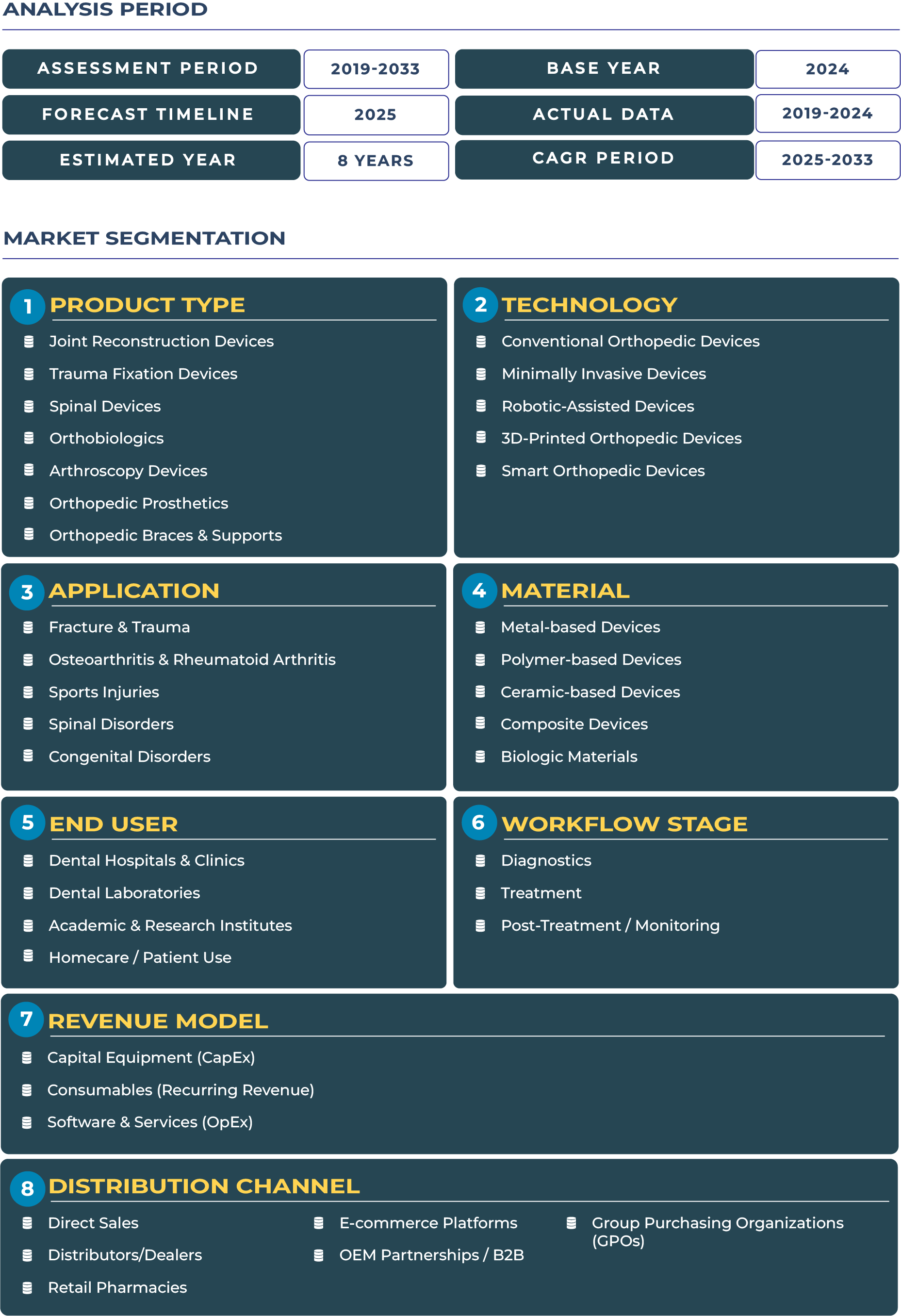UAE Orthopedic Devices Market Outlook: Luxury Healthcare Meets Global Medical Tourism
The United Arab Emirates (UAE) stands at the forefront of advanced healthcare ecosystems in the Middle East, with orthopedic devices forming a critical pillar of its specialized medical services. Known for its positioning as a premium healthcare and tourism hub, the country’s orthopedic market is increasingly influenced by medical travelers seeking advanced procedures in Dubai and Abu Dhabi. With its high-value patient base, internationally accredited hospitals, and sophisticated infrastructure, the UAE orthopedic devices market is transitioning into one of the most lucrative healthcare technology segments in the Gulf region. The orthopedic ecosystem reflects the UAE’s broader healthcare ambition—integrating premium care with inbound tourism while fostering innovation in implants, prosthetics, and minimally invasive treatments.
The orthopedic devices market in the UAE is positioned as a small yet high-value industry that benefits directly from the country’s leadership in medical tourism. In 2025, the market is expected to reach USD 249.3 million and is projected to grow to USD 395.2 million by 2033, registering a CAGR of 5.9% between 2025 and 2033. This steady expansion reflects the rising flow of patients from Europe, Africa, and Asia into Dubai and Abu Dhabi’s premium hospitals. Orthopedic surgeries, particularly joint reconstruction and spine procedures, are among the most in-demand services within medical tourism. Internationally recognized healthcare clusters, government initiatives to enhance health infrastructure, and collaborations with global device leaders are further accelerating this growth trajectory. While geopolitical tensions in the wider region occasionally raise operational risks, the UAE’s stability and business-friendly healthcare policies continue to sustain its role as a regional orthopedic destination of choice.
Drivers & Restraints: Balancing Luxury Healthcare with Market Competition
Strong Growth Catalysts Shaping the UAE Orthopedic Devices Landscape
The orthopedic devices industry in the UAE is strongly supported by its reputation as a regional medical tourism hub. Dubai’s premium hospital chains, such as Dubai Healthcare City and Abu Dhabi’s large private sector hospitals, are key players in attracting international patients. Additionally, the country’s strong logistics networks and financial services infrastructure make it a natural gateway for global orthopedic device companies to access Middle Eastern and North African markets. The government’s focus on advanced medical technologies, combined with high disposable income levels, supports demand for premium implants and robotic-assisted orthopedic procedures. Furthermore, orthopedic biologics and arthroscopy devices are increasingly in demand as patients seek faster recovery and minimally invasive alternatives.
Challenges of Market Scale and Service Expectations
Despite its growth, the orthopedic devices market in the UAE faces constraints that temper its scalability. The most pressing issue lies in market competition, with multiple global players vying for a limited but premium patient base. High service expectations from affluent patients create added pressure on hospitals and suppliers to provide cutting-edge solutions at all times. Moreover, while premium segments thrive, price sensitivity in non-premium categories limits the adoption of mid-tier devices, particularly in smaller clinics outside Dubai and Abu Dhabi. Additionally, the sector is exposed to global supply chain disruptions and cost escalations, which can impact procurement strategies in both private and public healthcare networks.
Trends & Opportunities: Orthopedic Innovation Meeting Regional Specialization
Major Market Trends Redefining the Orthopedic Devices Ecosystem
Several transformative trends are reshaping the orthopedic devices industry in the UAE. High-end orthopedic centers are expanding in Dubai, with specialized wings focusing on joint replacement and sports medicine. The growing number of inbound medical tourists, particularly from Africa and Eastern Europe, is intensifying demand for premium spinal implants and arthroscopy solutions. Private chain consolidation, led by large hospital operators expanding their orthopedic divisions, is further enhancing scale and procurement efficiency. Furthermore, the adoption of robotic-assisted surgeries in orthopedic procedures underscores the UAE’s commitment to cutting-edge care that meets global benchmarks.
Opportunities for Device Companies in Premium and Regional Niches
The UAE orthopedic devices market presents multiple opportunities for both global manufacturers and regional distributors. Establishing flagship installations in premium centers across Dubai Healthcare City or Cleveland Clinic Abu Dhabi offers companies visibility and credibility. Additionally, the UAE’s role as a regional distribution hub enables device makers to serve GCC and African markets efficiently. Bundled service offerings—combining device provision with managed services and training—are gaining traction, particularly among boutique hospitals. Premium niche implants, including 3D-printed prosthetics and biologics-driven healing solutions, remain key opportunities for differentiation in the evolving market landscape.
Competitive Landscape: Global Leaders and Regional Specialists Strengthening UAE’s Market
The UAE orthopedic devices sector is dominated by international manufacturers, complemented by regional distributors and local partnerships. Companies such as Johnson & Johnson MedTech, Stryker, Zimmer Biomet, and Smith & Nephew have established a strong presence by partnering with flagship hospitals. Their strategies include setting up regional distribution hubs, offering managed service models, and providing advanced training symposiums for local surgeons. Notably, UAE hospitals have increasingly adopted premium spinal devices and robotic joint reconstruction systems since 2023, signaling strong alignment with global innovation trends. The ability of these companies to integrate clinical training with device supply is strengthening their ecosystem presence. Additionally, government-backed initiatives encouraging clinical trials and biomedical research in Dubai further support innovation-driven growth in the orthopedic landscape.







